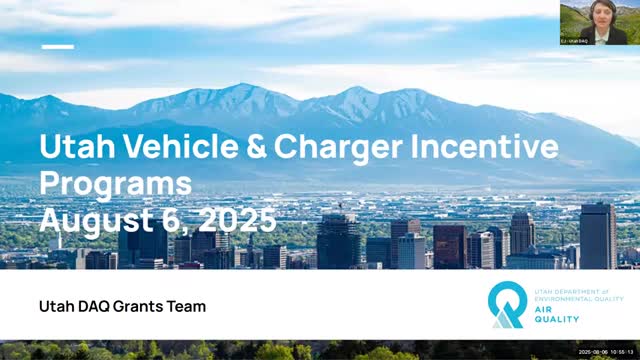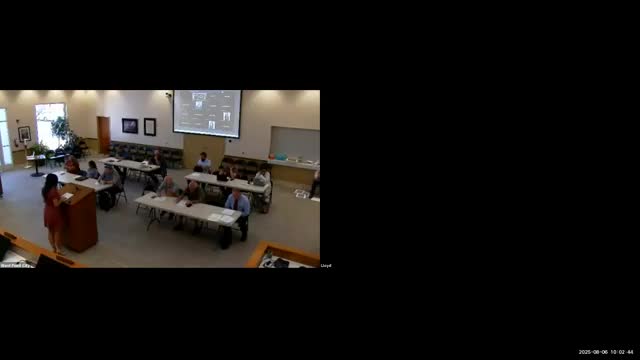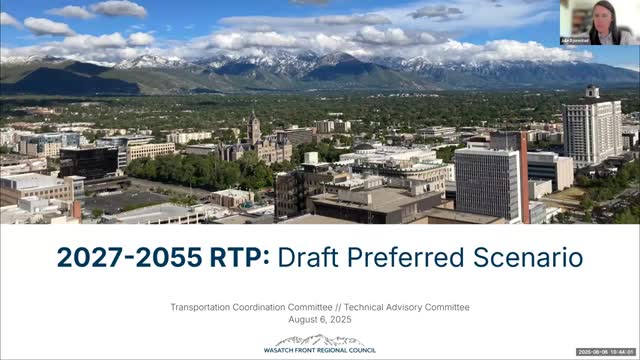Article not found
This article is no longer available. But don't worry—we've gathered other articles that discuss the same topic.

Utah Division of Air Quality outlines $200M+ in federal grants for EVs, chargers and fleet electrification

Wasatch Front committee reviews draft 2026–2031 TIP, reports 400+ public comments

Long‑range planning group seeks feedback on draft 2027–2055 regional transportation plan scenario

